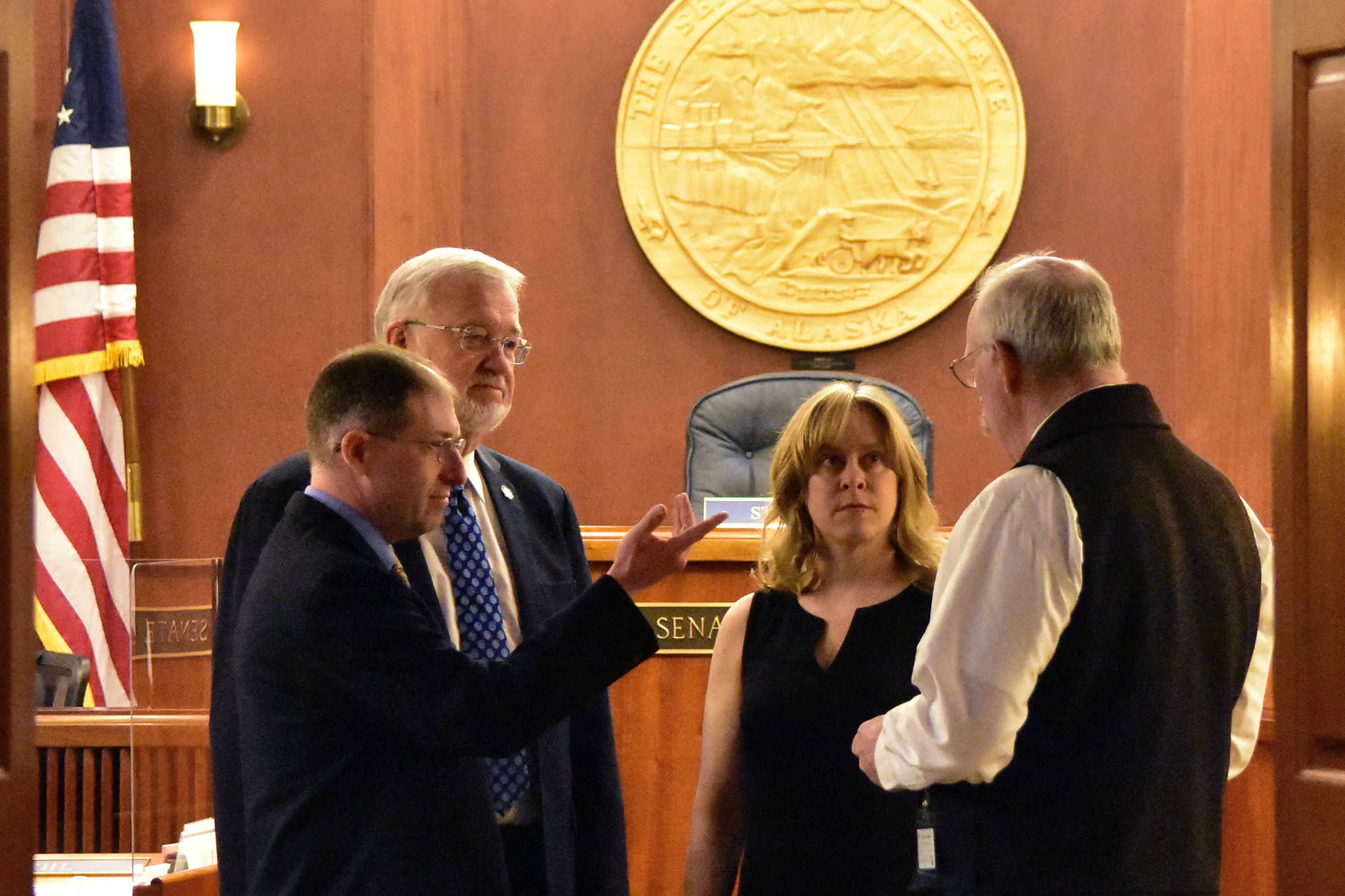Alaska Senator Gary Stevens-R spoke with the Homer News Monday to discuss current legislative proceedings concerning the budget, specifically the Permanent Fund dividend. Stevens has served as the senator for District P, which includes Kasilof, Homer, the southern Kenai Peninsula, Kodiak, Cordova, Seldovia and a southern portion of Soldotna, for more than 20 years.
With the July 1 deadline to pass the state budget quickly approaching, Stevens said he is confident the conference committee will reach a compromise and the budget will be passed without a government shut down.
“I know (the deadline) has caused a lot of angst among people because of the threat that we’d have to close down the government and pass out pink slips and fire state employees and teachers,” Stevens said of the budget deadline. “We’ve never done that, but the threat is always there. We’ve never done that, and I don’t think we ever will. We will pass a budget.”
Stevens explained that the capital budget, operating budget and mental health budget have already been agreed upon, but the Alaska permanent fund dividend is still up for consideration.
“The big issue of course of this session is how high will the dividend be,” Stevens said. “… Right now, we are all over the place on the permanent fund dividend. There are people in the legislature that want a $0 dividend in order to never have to have an income tax or (statewide) sales tax. There are people who want up to a $3,000 dividend, including the governor.”
According to Stevens, the House budget did not include the permanent fund dividend in the proposed budget; however, the Senate designated $2,400 for the permanent fund dividend, leaving the conference committee to settle on a dividend between $0 and $2,400 before the budget can be passed.
“So here we are between zero and really $3,000, and that’s what we’re trying to decide: what’s the right answer and how do we get the votes, the majority to agree on what the right answer is?” Stevens said. “I think in the end, my belief is that we’ll end up at $1,000. That’s good. It helps people.”
Currently, the Alaska permanent fund has accrued almost $80 billion, which is supplied by 25% of all oil revenues. The permanent fund was established in 1976 as an amendment to the state of Alaska Constitution to compensate for the eventual decline of revenue from nonrenewable natural resources like oil and gas, and to ensure the depletion of resources would not cause a financial strain on the state. A portion of the money in the permanent fund is used for government services, allowing the state of Alaska to operate without a statewide sales tax or income tax.
The permanent fund is made up of two accounts: the principal, which cannot be used by lawmakers, and earnings, which can be spent by a majority vote. The fund continues to grow each year as long as it is not overdrawn. Under current law, the government can only use up to 5% of allotted funds before damaging the future value of the account. Stevens explained that for every $1 billion extra overdrawn, the fund continues to lose $500,000 in interest each year.
“My concern about the permanent fund is that it can be easy to destroy it. It can be easy to overdraw it. Right now, we have a $1,000 PFD, somewhere around there, … which will not overdraw the permanent fund,” Stevens said. “If we leave it alone and let it grow, it will keep turning over money for us well into the future. Hopefully people will never have to pay an income tax or (statewide) sales tax if we do this properly. If we overdraw it and use more money than we should, then we’re damaging it into the future. I would hate to see us destroy that fund.”
Stevens also said Gov. Mike Dunleavy’s recent proposal to amend the state constitution to merge the two accounts in the permanent fund to manage it as an endowment would limit the ability of the legislature in case of an emergency.
“I am concerned that if we take everything out of the hands of the legislature, for example, we take the permanent fund dividend out of the hands of the legislature, what do we do if there is a disaster? What do we do if there is another COVID-19 (pandemic)? What do we do if there is a major earthquake?” Stevens asked. “We have to have access to pay the cost of government, and if you take that out of our hands by putting it in the constitution and say we can’t deal with it, we have no control over it, then the options for us are very limited. How do we get revenues to run the government? Well, it’s pretty simple. It’s either an income tax or a sales tax, and I’d hate to see us get to that. Very simply, I am not in favor of us changing the constitution.”
The conference committee continues discussions this week to decide a dividend total, which will then be presented to the legislature before the July 1 deadline.
“I can promise you that between now and June 18, we will get this figured out,” Stevens said.
For more information, contact Stevens at Senator.Gary.Stevens@akleg.gov or call the Homer Legislative Information Office at 907-235-7878.
Reach Sarah Knapp at sarah.knapp@homernews.com.


